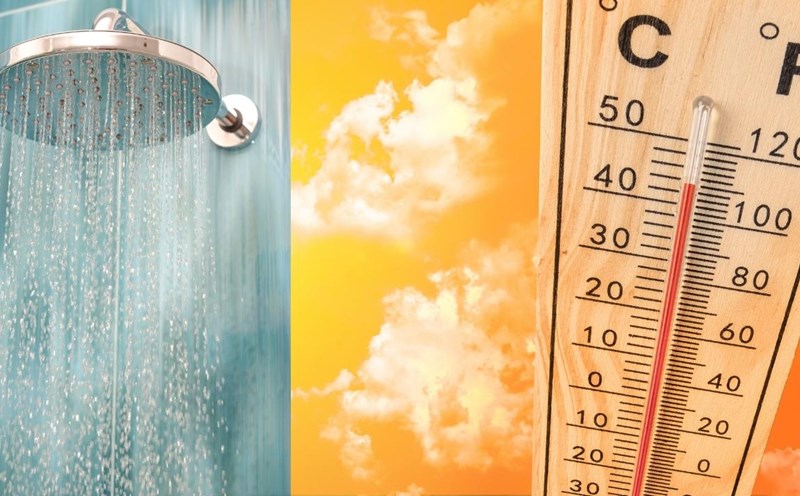Taking a cold shower has many benefits such as reducing inflammation, soothing the skin, increasing energy and improving mood through the release of endorphins. However, according to health experts, this method is not suitable for everyone and can cause serious harm to people with underlying diseases.
Dr. Manjusha Agarwal, Senior Consultant Internal Medicine at Gleneagles Hospital, Mumbai (India), shared on indianexpress, for people with weak immune systems, chronic diseases such as diabetes or respiratory diseases, regular cold showers can aggravate symptoms and slow down recovery. The use of cold water needs to be carefully considered and a doctor should be consulted in advance.
Here are the people who should not take cold showers:
People with cardiovascular disease
According to Dr. Narendra Singhla, an internist at Birla CK Hospital (Delhi), cold water can cause sudden vasoconstriction, increasing blood pressure and heart rate. This is especially dangerous for people with heart disease such as heart failure and coronary artery disease. Sudden changes in temperature can lead to stroke or heart attack.
People with high blood pressure
Taking a cold shower causes vasoconstriction, causing blood pressure to suddenly increase. This is a major risk factor for stroke or other cardiovascular complications. People with a history of high blood pressure should completely avoid taking cold showers, especially early in the morning or after exercising.
People who have had a stroke
Temperature changes can trigger a neurological reaction that causes blood pressure to spike, increasing the risk of recurrent stroke. For people who have experienced a stroke, experts recommend maintaining warm water baths and avoiding sudden cold exposure.
People with Raynaud's disease
Raynaud's disease causes constriction of blood vessels in the fingers and toes when exposed to cold, leading to pain and paralysis. Cold water can make these symptoms worse, greatly affecting daily activities.
Elderly people
Older adults have the ability to regulate body temperature less well and are more susceptible to hypothermia. In addition, cold water can make them dizzy, fall, or cause a rash of underlying cardiovascular problems.









